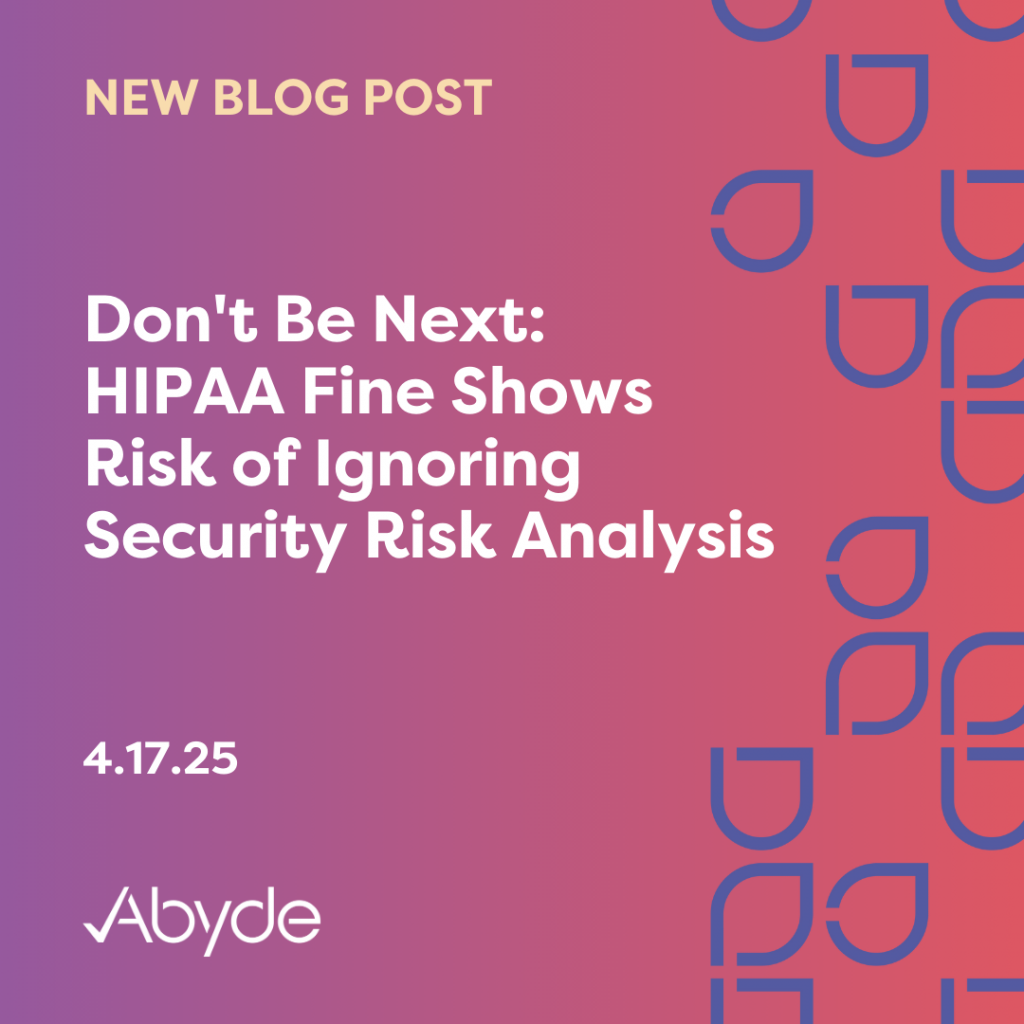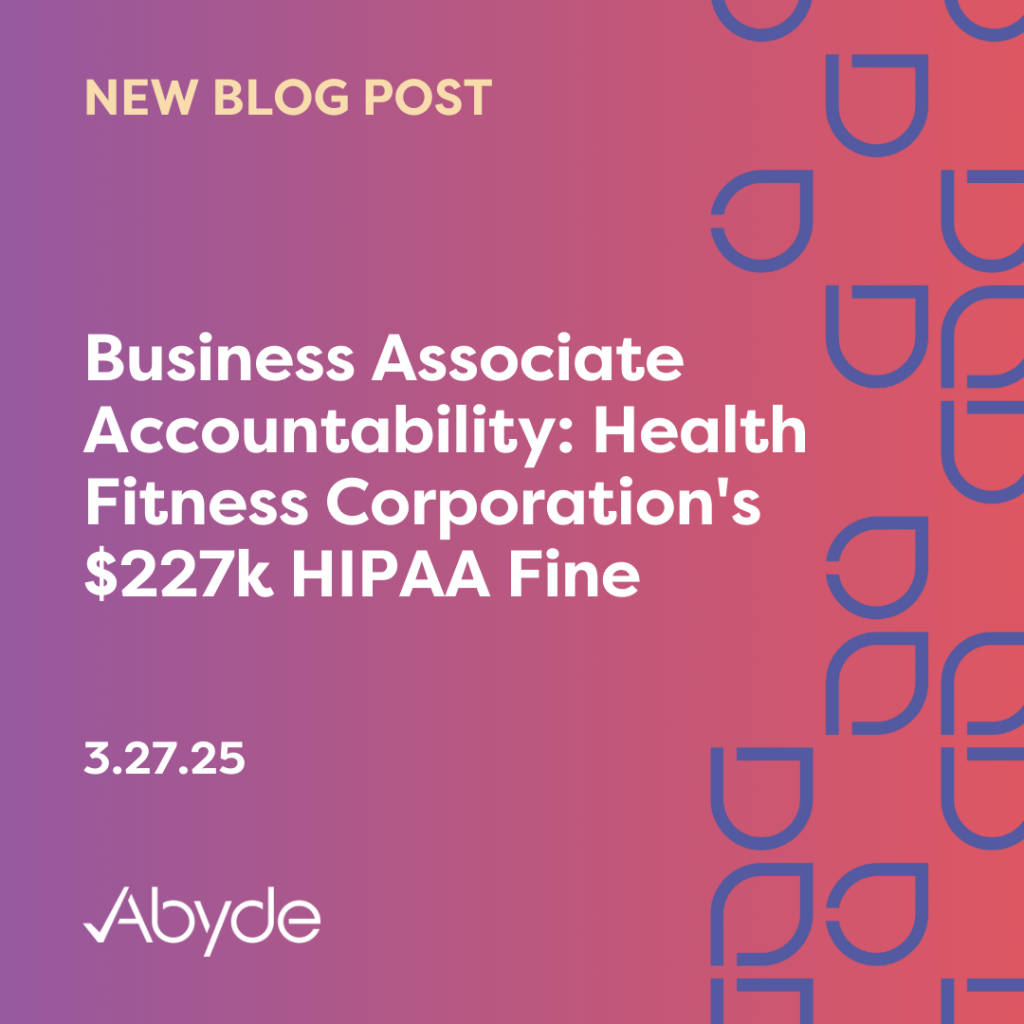April 17, 2025 Let’s make this clear: The Security Risk Analysis (SRA) is at the foundation of a compliant practice. The SRA is the proactive assessment of your practices’ physical, technical, and administrative safeguards. Physical safeguards include alarms, codes, and other procedures or devices your practice might deploy. Technical safeguards involve cybersecurity protocols, like firewalls, antivirus software, encryption, and other security measures. Lastly, the administrative safeguards are your practice’s actions, such as using visitor IDs, maintaining a sign-in sheet, or even posting about patients on social media. The latest HIPAA fine is another reminder of the importance of the SRA in protecting patient data. This is the sixth Risk Analysis Initiative enforcement since the end of last year. The Office for Civil Rights (OCR) is serious about ensuring that practices know this requirement. This focus has remained consistent even during administration transitions. Said best by OCR Acting Director Anthony Archeval, “A failure to conduct a risk analysis often foreshadows a future HIPAA breach.” What Happened? Northeast Radiology, P.C. (NERAD), a healthcare provider specializing in medical imaging clinical services in New York and Connecticut, experienced a significant breach that exposed nearly 300,000 patients’ Protected Health Information (PHI). The breach, which occurred from April 2019 to January 2020, was caused by unauthorized individuals accessing radiology images of patients due to a compromised server. When the OCR began investigating the practice in March 2020, it was discovered that NERAD did not have an SRA. Due to the absence of this document and the sheer size of the breach, the organization was fined $350,000 and will undergo a two-year Corrective Action Plan (CAP). Completing an SRA NERAD’s HIPAA settlement with the OCR is a clear reminder that your practice needs to complete an SRA long before a breach occurs. While an SRA might seem daunting, addressing problems before patients’ information is at risk is much easier. Completing this risk assessment can help your practice identify vulnerabilities before they escalate into compliance issues. While the SRA mandates practices to analyze and review existing procedures thoroughly, this process doesn’t need to be overwhelming or costly. With smart solutions, your practice can answer simple questions about your practice while the software intuitively builds out an SRA report, analyzes the current situation, and provides recommendations to mitigate potential risks. To learn more about how your practice can streamline the SRA, schedule a consultation with an expert today.
Business Associate Accountability: Health Fitness Corporation’s $227k HIPAA Fine
March 27, 2025 With over $3.5 million of fines levied against Business Associates (BAs) so far in 2025, it’s fair to say that the Office for Civil Rights (OCR) is serious about holding them accountable. These fines in 2025 serve as a reminder that BAs play a crucial role in safeguarding Protected Health Information (PHI). The latest BA HIPAA fine was enforced on the Health Fitness Corporation, which offers wellness plans nationwide. After a flurry of breach reports, Health Fitness Corporation found itself in the crosshairs of a HIPAA investigation. This investigation exposed some critical missteps, leading to a $227,816 settlement and a two-year Corrective Action Plan (CAP). At the center of this fine is a missing Security Risk Analysis (SRA). The SRA is a thorough assessment that identifies the organization’s vulnerabilities. This fine was also the fifth enforcement of the Risk Analysis Initiative, a recent program by the OCR to ensure regulated entities complied with this HIPAA requirement. This fine not only spotlights the importance of Business Associates following HIPAA, but also for all regulated entities to be aware of the Security Risk Analysis requirement. What Happened? In August 2015, PHI was exposed online due to a server misconfiguration. This breach was not discovered in June 2018, with an estimated 4,000 patients impacted by this security issue. Four breach reports describing this incident were filed from the end of 2018 into early 2019. This led to the OCR investigating Health Fitness Corporation. It was then uncovered that the organization did not complete a thorough SRA until 2024. The SRA is an annual requirement for every HIPAA-regulated entity. This assessment should also be completed after any breach to review and address vulnerabilities. As a result, the wellness program organization was fined $227,816 with government monitoring for the next two years. How to Protect Your Organization When working with PHI, all involved parties must know their responsibilities. For Covered Entities and Business Associates, having a Business Associate Agreement (BAA) with any third parties with access to PHI is vital. BAAs define each party’s responsibilities, creating legal liability. This required document demonstrates that each party is willing and able to take responsibility for protecting sensitive patient data. In addition to being aware of HIPAA responsibilities, ensure your organization completes an SRA annually, and anytime a breach occurs. Risks can be mitigated by being on top and informed about your organization’s vulnerabilities. Utilizing a smart software solution can streamline these requirements. Smart solutions can streamline the SRA and any BAAs, protecting your organization. To learn more about how you can automate and streamline compliance in your practice, schedule a consultation with an expert today.

